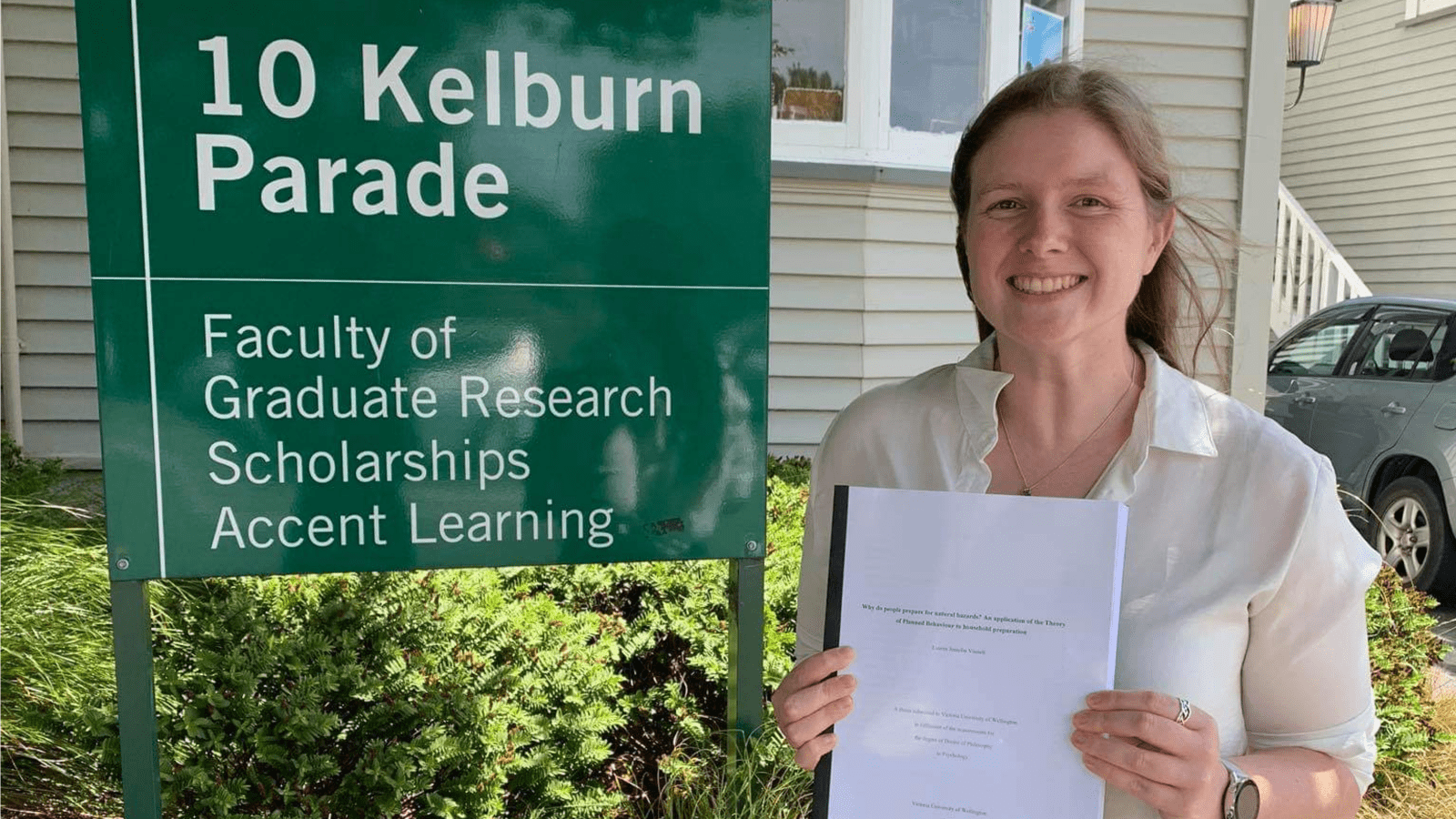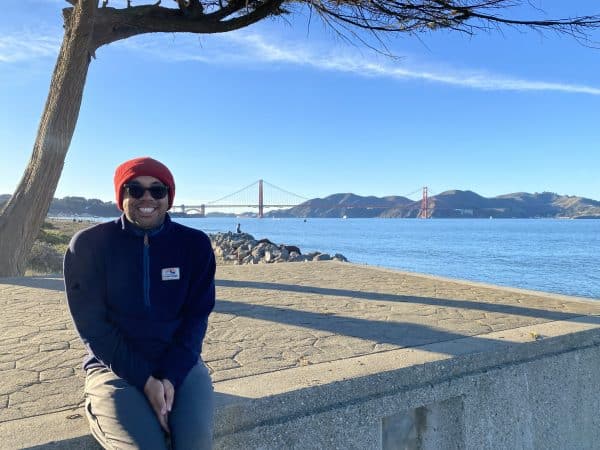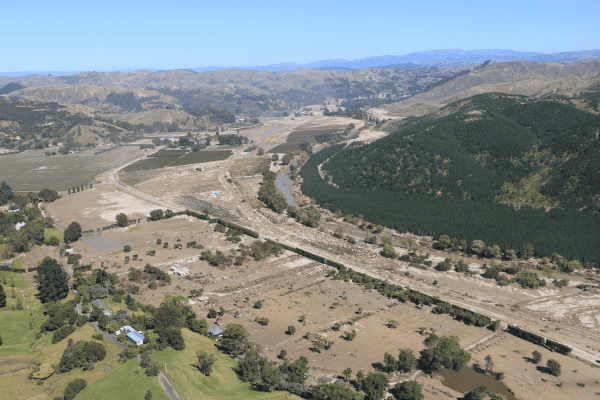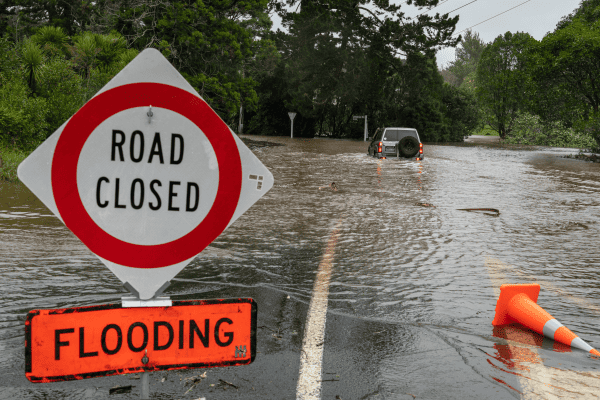Findings from Dr Lauren Vinnell’s PhD research will help fine-tune the kind of advice communities need to better prepare for earthquakes and other natural hazards
For her PhD in Psychology, Te Herenga Waka—Victoria University of Wellington’s Dr Lauren Vinnell studied how the thoughts and beliefs people hold about preparing for natural hazards influences their behaviour.
She also identified potential new strategies to encourage improved household preparation.
Lauren, who graduated in December, has always been fascinated by natural hazards such as earthquakes and volcanoes.
“But I didn’t see a way to include my interest in people’s behaviour until my third undergrad year during a lecture about how we can use our understanding of psychology to improve outcomes during and after earthquakes.
She undertook honours and a Master’s degree, focusing on public support for earthquake-strengthening legislation. Then she was awarded a PhD scholarship by Kia Manawaroa – Ngā Ākina o Te Ao Tūroa Resilience to Nature’s Challenges National Science Challenge to explore social influences on people’s decisions to prepare for natural hazards.
Lauren says there were a few revelations on the way.
“It was a bit surprising how many people said they hadn’t done a certain action because they hadn’t thought about it.
“What was even more surprising was that we didn’t find that thinking about preparing related with actually preparing. This suggests there are specific actions which people don’t know they can or should do, but that generally thinking about preparing isn’t the problem.”
Lauren says preparedness among Wellingtonians for dealing with natural hazards is fairly low, despite high knowledge of the risk.
Participants in the first two studies were mainly recruited using social media, although samples using this method tended to favour younger people and over-represented women and Pākehā, she says.
The third study involved people at randomly selected addresses to get a sample that better reflected the Wellington population. The fourth study, to evaluate the ShakeOut earthquake drill run by the National Emergency Management Agency, involved participants from across the country.
Lauren found providing targeted information for communities to use in their preparedness is the key.
“Our findings offer ideas to improve the way we talk to communities to encourage them to prepare, really focusing on the types of thoughts and beliefs they have which hold them back.”
Lauren also experimented with people’s understanding of terminology.
“In study two, half of the participants were asked about ‘natural hazards’ and the other were asked about ‘natural disasters’. There is a strong argument in the field that the term ‘natural disaster’ is inappropriate, as disasters are the result of human decisions which lead to exposure to risk.
“Very little research has explored how the use of the term might influence behaviour. Our participants largely didn’t differ in terms of how they think about natural hazards versus natural disasters, but they did differ in terms of how their thinking related to their intentions to prepare.”
She says the findings suggest that talking about disasters implies that something terrible has already happened and therefore can’t really be prepared for, whereas hazards refer to the potential for something bad to happen, which can therefore be prevented.
“But we need to do further work to back up this suggestion. This finding also emphasises the importance of considering the words we use when talking to communities.”
An evaluation of the ShakeOut earthquake drill showed those who participated have better knowledge of the correct protective actions to take during shaking and that these people are more likely to have used those actions during actual earthquakes, Lauren says.
“Given the high proportion of injuries during earthquakes in Aotearoa which could be prevented by people knowing and using ‘Drop, cover, and hold’, this support for the effectiveness of ShakeOut is encouraging.”
Lauren has now begun a postdoctoral fellowship at the Joint Centre for Disaster Research at Massey University, investigating how people respond and behave when asked to consider multiple hazards at once.
This article was originally published on the Te Herenga Waka Victoria University of Wellington website and is reproduced here with permission.




